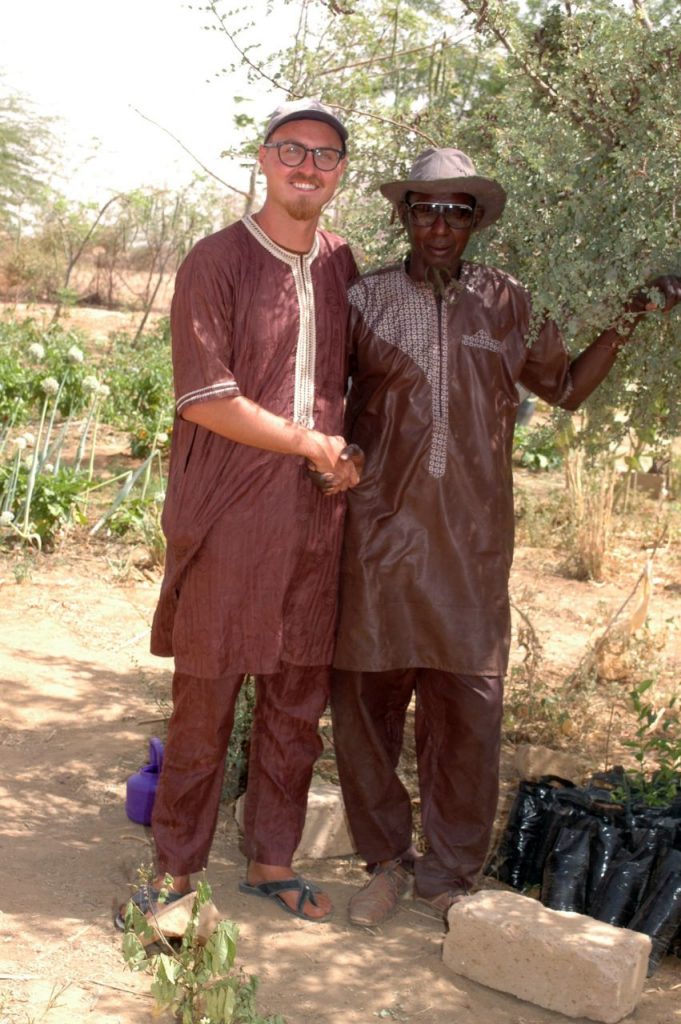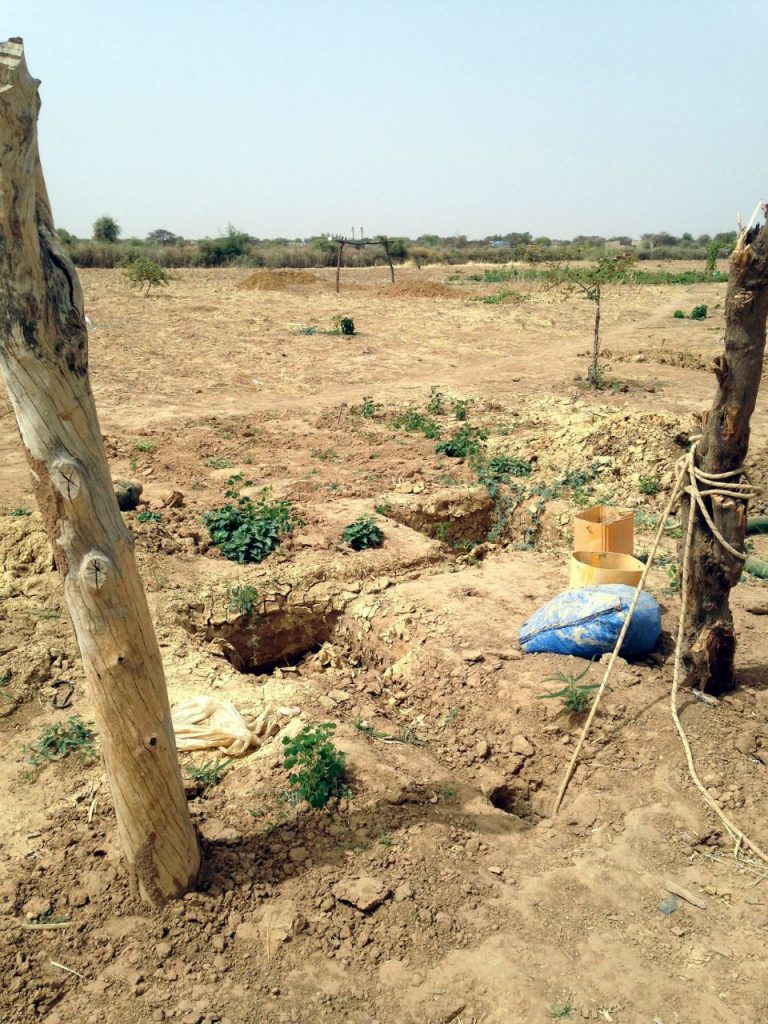This project is made possible through the partnership of WATER CHARITY and the NATIONAL PEACE CORPS ASSOCIATION. ![]()
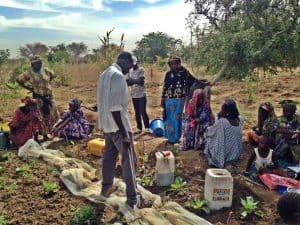 Location
Location
Galoyabe, Matam, Senegal
Community Description
Galoyabe is a rural village situated roughly 15 kilometers from the border of Mauritania in the Northeast corner of Senegal. This village is ethnically and linguistically Pulaar and is comprised of about 1,500 people. The village does not have access to electricity. The nearest water tower is a kilometer away, yet most family compounds have a water spigot in which they can access water.
Galoyabe is a community made up of farmers and herders. In the rainy season, men, women, and children take to the fields to grow field crops such as beans, corn, and sorghum. In the rainy and cold seasons, women gather together in any one of 4 local women’s gardens to grow vegetables such as eggplant, cabbage, sweet potatoes, and turnips. Year-round, herders lead groups of cows, sheep, and goats through this village and out into the surrounding areas. In Galoyabe, those that do not farm, herd, and vice versa.
The field crops grown in Galoyabe are grown for consumption within the family, to satisfy food security for the whole year. The vegetables grown in women’s gardens are consumed by families but are additionally sold in local markets to create economic incentives for agriculture. In addition to fields and gardens, Galoyabe also has a primary school, elementary school, three Koranic schools, an unused health post, a daily market, and a mosque.
Problem Addressed
While someone from each household compound does some form of farming or agriculture, Galoyabe has a severe lack of water. This causes an issue in the sustainability of the production of field crops, fruits, and vegetables. The nearest water tower that supplies water for drinking, bathing, and agricultural practices is a full kilometer away, and this distance often leads to a shortage of water in the households, gardens, and fields on the Northside of Galoyabe.
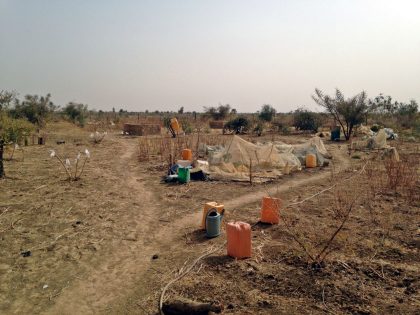 Two existing women’s gardens and two individual farmers’ fields currently have little to no water coming to their spigots due to this distance. Because of a very dry rainy season last year, very little field crops were produced, leading to an issue of food security within individual households. The Northside of Galoyabe does not have enough water to sustainable agricultural practices. Currently, these fields either do not have a water source or lack a sufficient amount of water to remain productive year-round.
Two existing women’s gardens and two individual farmers’ fields currently have little to no water coming to their spigots due to this distance. Because of a very dry rainy season last year, very little field crops were produced, leading to an issue of food security within individual households. The Northside of Galoyabe does not have enough water to sustainable agricultural practices. Currently, these fields either do not have a water source or lack a sufficient amount of water to remain productive year-round.
Project Description
The objective of this project is to drill a borehole and construct a small water tower in a field on the North end of Galoyabe to provide a stable water source for two active women’s gardens and two individual farmers’ fields.
The deep borehole will be dug by a well-digging contractor based in the region of Matam. This borehole will be roughly 30m deep in order to tap into the low water table of the region and to ensure secure access to the groundwater. A structure will be constructed to house a pump.
Galoyabe Master Farm and Kawral Galoyabe Women’s Garden will be coordinating collecting money and digging of the borehole.
Four water lines will be dug by community members and spigots installed in the 2 women’s gardens and 2 farmer’s fields, and a pump will be purchased to provide water to these dry agricultural spaces.
Water Charity will provide funding for the digging of the borehole and for the materials needed to construct water lines and the structure to house the water pump, as well as the mason’s labor.
The community members who will benefit from the project plan to collect and set aside money to put towards the purchase of a pump, either solar or gas-powered.
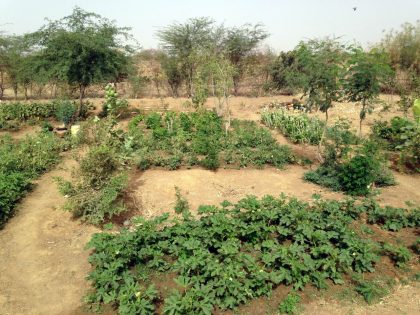 Project Impact
Project Impact
Upwards of 100 people will benefit from this project.
Peace Corps Volunteer Directing Project
Lucas Gillespie
Monitoring and Maintenance
Once the water tower has been constructed, the water pump purchased, and spigots are functioning, these community members will have a new source of water that will sustain their fields and gardens over a long period of time. The benefits of this project will be sustained so long as the pump, whether fuel or solar, continues to function, and no part of the water tower breaks.
A local farmer said that they will open a joint bank account in an agriculture credit union so that these beneficiaries can collect money and save it responsibly so that in the situation of a broken pump or other issues, they can use their own collected money to repair the water tower and continue reaping the benefits of the water supply. In this way, these community members show their dedication to this project and their need for water in this arid climate.
Additionally, the PCV will maintain a presence in these gardens and fields by hosting seasonal training on a variety of topics related to improved agricultural practices. So long as a stable water source is available, there will be sustained use of the gardens and fields.
Project Funding
This project subsequently was funded with SPA funding. There was no expenditure of our funds, and we are closing our file.
